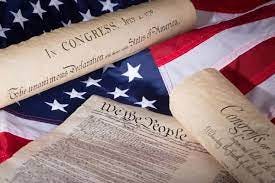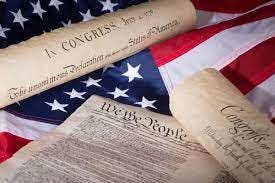What does the Fourth of July mean to me?
The hope for an anti-imperialist constitutional republic
On July 5, 1852, at a meeting organized by the Rochester Ladies’ Anti-Slavery Society, Frederick Douglass delivered a speech, “What to the Slave Is the Fourth of July?” In its most famous, widely cited passage, Douglass declared:
What, to the American slave, is your 4th of July? I answer: a day that reveals to him, more than all other days in the year, the gross injustice and cruelty to which he is the constant victim. To him, your celebration is a sham; your boasted liberty, an unholy license; your national greatness, swelling vanity; your sounds of rejoicing are empty and heartless; your denunciations of tyrants, brass fronted impudence; your shouts of liberty and equality, hollow mockery; your prayers and hymns, your sermons and thanksgivings, with all your religious parade, and solemnity, are, to him, mere bombast, fraud, deception, impiety, and hypocrisy—a thin veil to cover up crimes which would disgrace a nation of savages. There is not a nation on the earth guilty of p…



